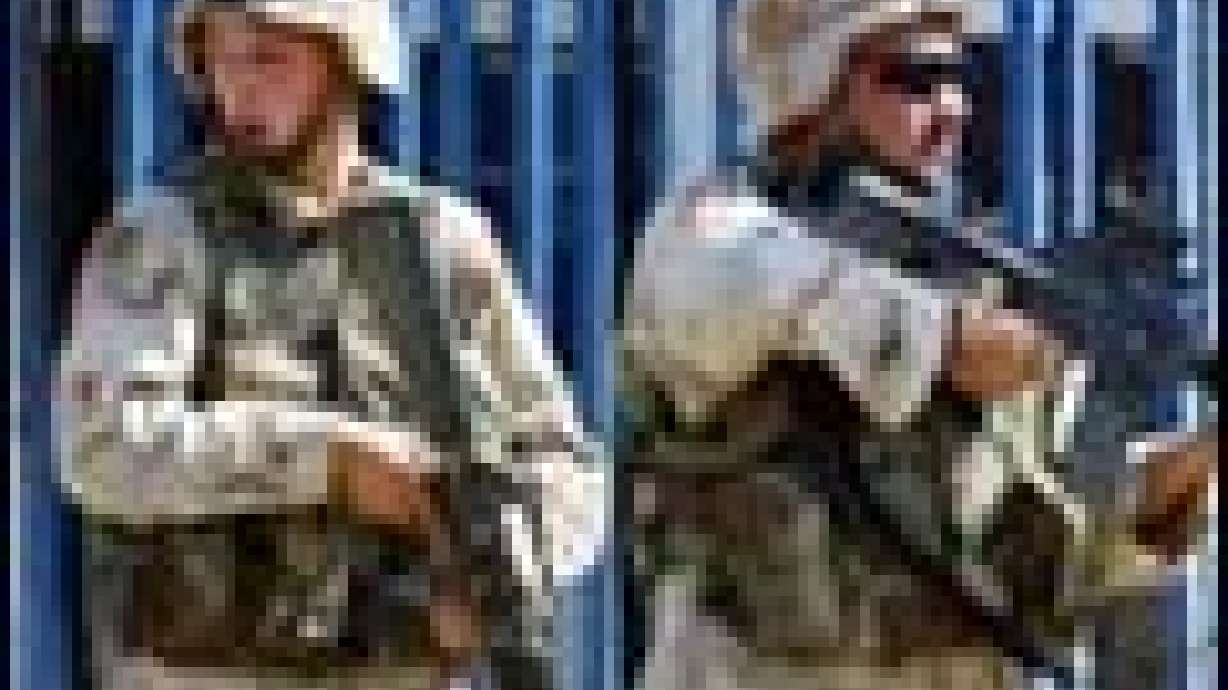Estimated read time: 3-4 minutes
This archived news story is available only for your personal, non-commercial use. Information in the story may be outdated or superseded by additional information. Reading or replaying the story in its archived form does not constitute a republication of the story.
WASHINGTON (AP) -- Pleading for patience, President Bush said the United States will "have to remain tough" in Iraq despite attacks on U.S. soldiers that killed at least two more Americans on Thursday.
Bush spoke in Gaborone, Botswana, amid a debate at home about erroneous evidence that the administration cited as part of its justification for the invasion of Iraq. A group of arms control experts accused the administration of misrepresenting intelligence information to justify the war.
Bush, responding to concern about the rising casualty toll, said, "There's no question we have a security issue in Iraq, and we've just got to deal with it person to person. We're going to have to remain tough."
More than 70 American soldiers have died since Bush declared major combat over May 1. "It's going take more than 90 to 100 days for people to recognize the great joys of freedom and the responsibilities that come with freedom," he said. "It's very important for us to stay the course, and we will stay the course."
Wednesday, at a news conference in South Africa, Bush said he was "absolutely confident" about going to war despite the discovery that allegations Saddam Hussein had sought uranium in Africa for a nuclear weapons program was based on fabricated information.
When the war began in March, Iraq posed no threat to the United States or to its neighbors, a former senior State Department intelligence official said Wednesday.
Its missiles could not reach Israel, Saudi Arabia or Iran, said Greg Thielmann, who held a high post in the Bureau of Intelligence and Research.
But Thielmann, one of four critics at a session held by the private Arms Control Association, said the Bush administration had formed a "faith-based" policy on Iraq and took the approach that "we know the answers; give us the intelligence to support those answers."
Thielmann said the administration had distorted intelligence to fit its policy purposes. He said Iraq had no active nuclear weapons program and that while CIA Director George Tenet told Congress Iraq had Scud missiles, the intelligence finding actually was that the missiles could not be accounted for.
Defense Secretary Donald H. Rumsfeld said the administration decided to use military force because the information about the threat of Saddam's regime was seen with a different perspective after the terrorist attacks on Sept. 11, 2001.
"The coalition did not act in Iraq because we had discovered dramatic new evidence of Iraq's pursuit of weapons of mass murder," Rumsfeld told the Senate Armed Services Committee. "We acted because we saw the existing evidence in a new light through the prism of our experience on Sept. 11."
Under questioning from Sen. Robert Byrd, D-W.Va., Rumsfeld said he did not know how much the administration would propose to pay for operations in Iraq and Afghanistan for the new budget year that begins Oct. 1.
He said under the $62.4 billion midyear spending bill, the United States expects to spend an average $3.9 billion a month on Iraq from January through September this year. An average of $700 million a month is being spent in Afghanistan.
The Pentagon said Wednesday 1,044 American servicemen and women have been wounded in action or injured since the war in Iraq began March 20. Of that total, 382 have been wounded or injured since Bush declared major combat over, according to the Pentagon's figures. Of the 212 U.S. troops who have died in Iraq since the war began, 74 died after May 1, not including Thursday's toll.
The Army's 3rd Infantry Division is beginning a phased pullout of its 16,000 troops, with the entire unit expected back in the United States by September, Rumsfeld told the committee. The division, which played a central role in capturing Baghdad in April, is based at Fort Stewart, Ga.
Rumsfeld said there are now 148,000 American troops in Iraq.
(Copyright 2003 by The Associated Press. All Rights Reserved.)









